Are you tired of long lines and endless searches for products? Imagine walking into a store where everything you need is practically handed to you or shopping online with recommendations that feel like they were made just for you. Sounds like a dream, right?Not anymore! Keep reading to find out how AI has made it all possible.
1. Personalized Shopping at Scale
In today’s competitive retail landscape, delivering a personalized shopping experience is key to customer satisfaction and loyalty. AI empowers retailers to do this on a large scale by collecting and analyzing real-time data.
Customer Data & Insights
AI helps retailers gather and interpret vast amounts of customer data, such as browsing patterns, purchase history, and behavioral trends. This data-driven approach allows businesses to predict what customers are most likely to buy and when. By understanding individual preferences, retailers can offer highly personalized shopping experiences, from targeted promotions to product suggestions, both online and in-store.
Dynamic Personalization in Stores
Personalization isn’t limited to e-commerce. AI is revolutionizing customer interactions to a great extent. With AI-powered smart devices, sensors, and beacons, brick-and-mortar stores can create dynamic, real-time personalized experiences. These technologies track customer movements and behaviors in-store, allowing retailers to send tailored promotions or product suggestions directly to their smartphones.
2. AI-Powered Inventory Management and Supply Chains
Managing inventory and supply chains is crucial for any retail manager. AI helps manage inventories more efficiently, reduce wastage, and optimize stock levels based on real-time data.
Smart Inventory Management
Retail giants like Amazon and Walmart leverage AI to automate inventory control and help prevent stockouts or overstocking. This impacts the customer experience by ensuring products are always available, reducing the frustration of out-of-stock items, and enhancing overall satisfaction. When you walk into a store or browse online, the chances of finding what you need are significantly higher thanks to these AI-driven systems. The future of AI and AR in retail is promising, with advancements continuously improving inventory management.
Predictive Supply Chain Analytics
AI allows retailers to predict demand, monitor supply chains, and manage logistics with unprecedented precision. This enables a more responsive and adaptable retail model. For example, Walmart uses RFID tagging to monitor the supply chain from farm to shelf. The benefits of AI in supply chain optimization clearly enhance efficiency and customer satisfaction.
3. Cashierless Stores and Autonomous Shopping
Imagine a world where you can grab what you need and just walk out of the store. AI-powered checkout systems, like Amazon Go’s, are removing friction from the shopping process by allowing customers to grab products and leave without needing to check out manually.
The Future of Cashierless Retail
AI-powered checkout systems are removing friction from the shopping process. You can now grab products and leave without needing to check out manually. This seamless experience is made possible through advanced technologies like smart shopping carts, QR codes, and machine vision. These innovations track your purchases in real time, allowing you to skip the lines and save time. The rise of these technologies is transforming the shopping landscape, making it faster and more convenient.
Automation and Robotics in Retail
AI-driven robots and automation systems are revolutionizing retail operations. These robots handle tasks such as restocking shelves, assisting customers, and performing routine cleaning. This automation frees up staff to focus on more valuable tasks like customer service, improving overall efficiency. The role of AI-driven robots in transforming shopping experiences is undeniable, making retail operations smoother and more efficient.
4. Enhanced Customer Experiences with AI
AI-driven solutions like personalized recommendations and cashier-less stores can significantly enhance the customer journey, making it more seamless and enjoyable.
Predictive Customer Service
AI enhances customer support by providing predictive solutions. Virtual assistants, chatbots, and voice recognition systems are now more adept at anticipating customer needs and solving problems faster.For example, Nike’s acquisition of Celect allows them to predict shopping behaviors, offering products that match your preferences. Similarly, Amazon’s Alexa delivers a personalized experience, suggesting items based on your shopping history and preferences. By enhancing customer experience, AI-driven solutions ensure that customers feel valued and understood.
Sentiment Analysis and Real-Time Feedback
AI uses tools like facial recognition and voice analysis to understand customers’ emotions in real time, improving service responses and creating a more immersive shopping experience. You can also create personalized videos for the retail Industry. These technologies enable retailers to enhance long-term customer loyalty by responding to your needs more effectively. If you seem frustrated, a virtual assistant might offer immediate help or a special discount to improve your experience.
5. AI-Driven Marketing and Promotions
By leveraging AI-driven marketing and promotional strategies, you can create more targeted and impactful campaigns, attracting more customers and boosting sales.
Automated Content Generation
AI helps retailers ensure that campaigns are more targeted and impactful. By analyzing customer data and market trends, AI can generate content that resonates with specific audiences. This leads to higher engagement and better conversion rates. The Ecommerce AI transformation is evident in how retailers are now able to craft more effective marketing strategies.
Enhanced Loyalty Programs
The role of AI in revolutionizing shopping experiences is crucial for creating more engaging and effective loyalty programs. With AI, loyalty programs are now more personalized, offering custom discounts, promotions, and incentives based on a shopper’s previous behaviors and preferences. This approach makes customers feel valued and understood, increasing their likelihood of returning.
Real-World Examples of AI Transforming Retail
Amazon's AI-Powered Recommendation Engine
Amazon’s recommendation engine is one of the most famous examples of AI in retail. The platform uses AI to analyze customer behavior, including previous purchases, searches, and browsing history, to offer personalized product suggestions. This approach generates a significant portion of Amazon’s revenue by keeping customers engaged with relevant products, making it a prime example of how AI can drive sales through personalization.
West Elm's Pinterest Style Finder
West Elm integrates AI through its Pinterest Style Finder, which helps personalize shopping experiences. Customers can upload their Pinterest boards, and the AI suggests products that match their style preferences, creating a unique, tailored shopping experience based on their tastes. You can also learn about best practices on Pinterest to engage with the audience.
Walmart’s Predictive Supply Chain Analytics
Walmart uses AI to monitor and manage its supply chain with precision. By using RFID tagging, Walmart tracks products in real-time from farm to shelf, ensuring the right quantities are available, reducing delays, and enhancing product availability for customers.
Amazon Go’s Cashierless Stores
Amazon Go’s AI-powered checkout systems allow customers to grab products and leave without waiting in line or checking out manually. This system uses smart shopping carts, machine vision, and sensors to track purchases in real time, making the shopping experience faster and more convenient. You can also optimize your store for Amazon and get further business.
Zara's Robot-Assisted Order Pickups
Zara employs robots to assist with order pickups, streamlining the process and reducing customer wait times. This use of AI-driven automation improves operational efficiency and enhances the customer experience by making order fulfillment faster and more accurate.
Starbucks' AI-Driven Loyalty System
Starbucks uses AI to power its voice ordering and loyalty management system. By analyzing customers' purchase history and preferences, Starbucks provides personalized rewards and promotions, ensuring that customers feel valued and are encouraged to return frequently.
Summing Up
AI will continue to transform the retail landscape, enabling even more personalized and immersive shopping experiences. Advances in AI technologies, such as generative AI and edge computing, will unlock new possibilities for retailers. For example, in the near future, AI will be generating videos for customer retention.For those looking to elevate their retail operations, platforms like Firework offer innovative solutions to transform your digital storefront into an interactive and immersive shopping environment.Put your commerce in motion. Find out how Firework can power your business forward. Request a demo today.
Unlock Exclusive Insights
By submitting this form, you agree to Firework's privacy policy and consent to receive personalized marketing communications. You can unsubscribe at any time.
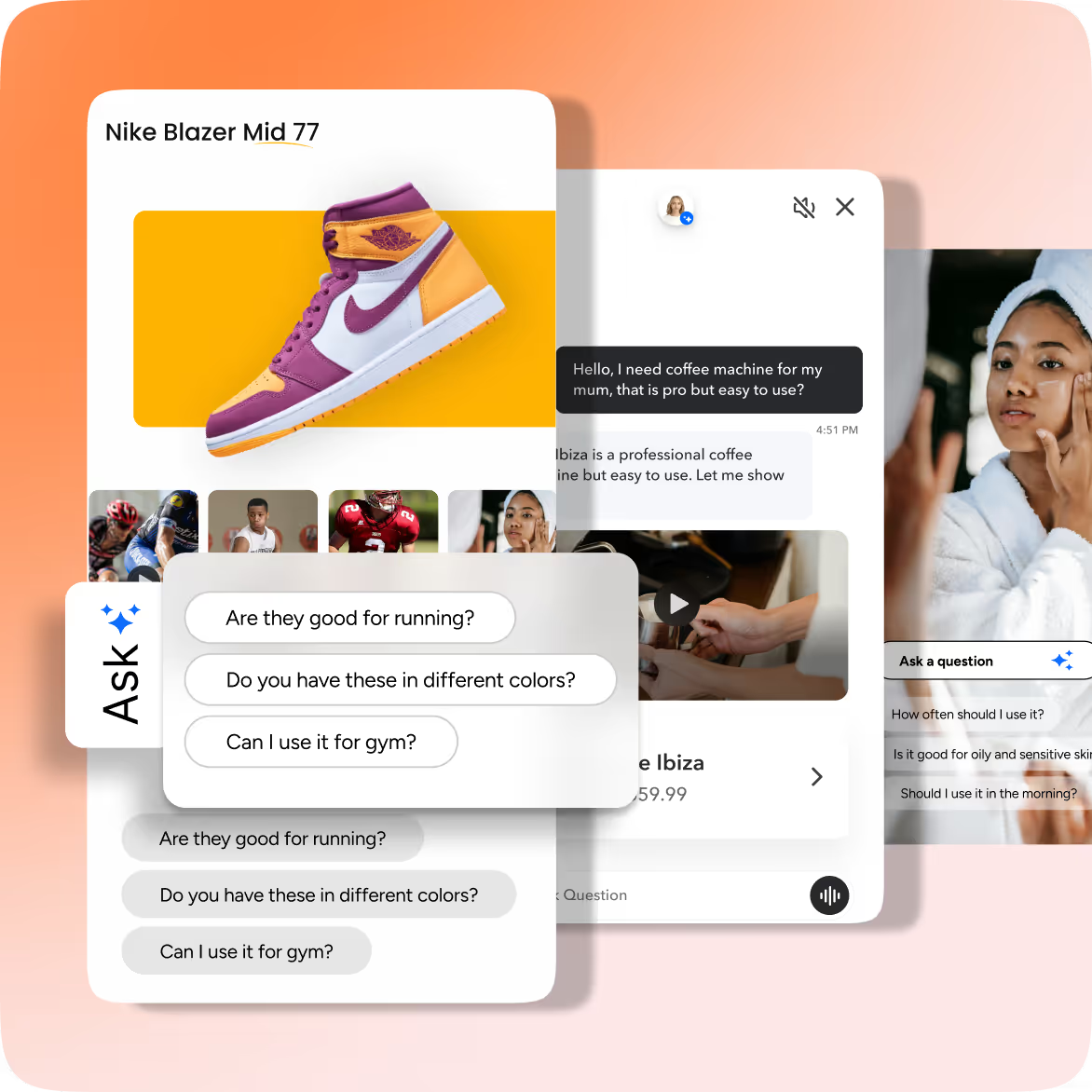
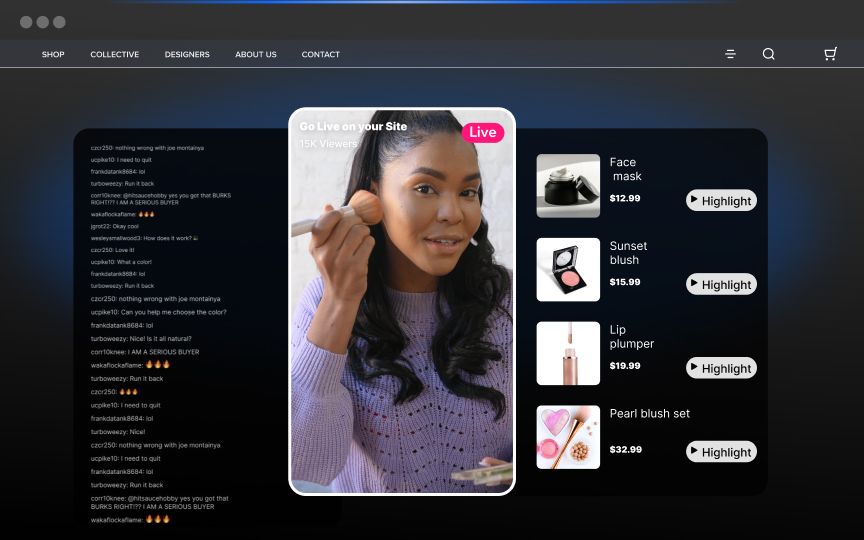
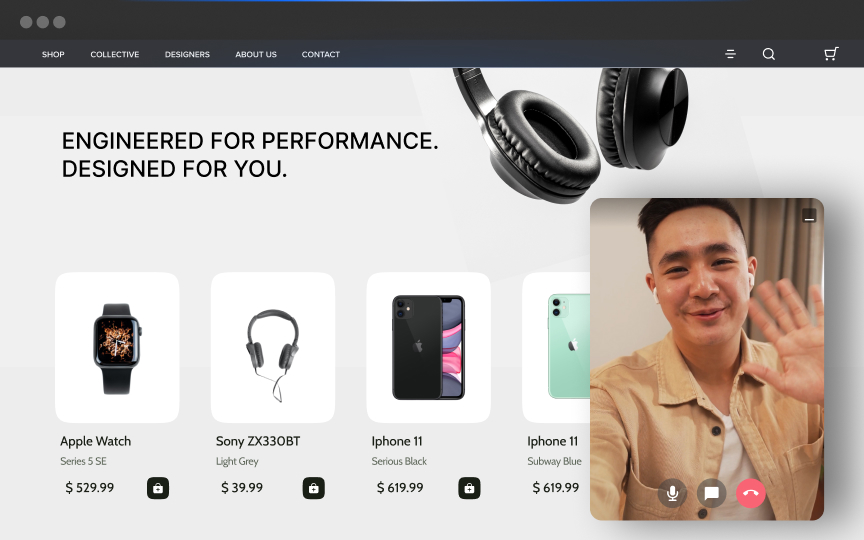


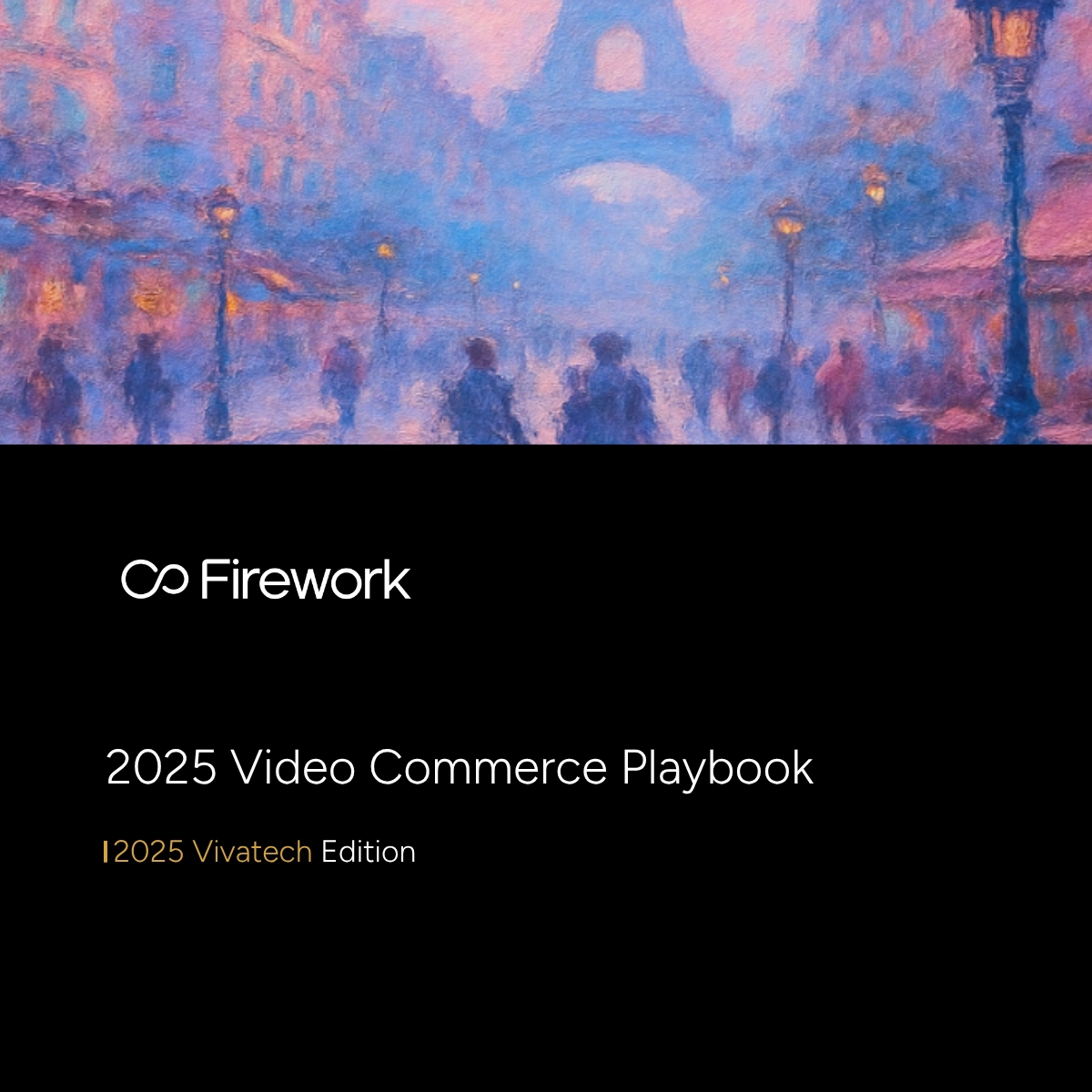



















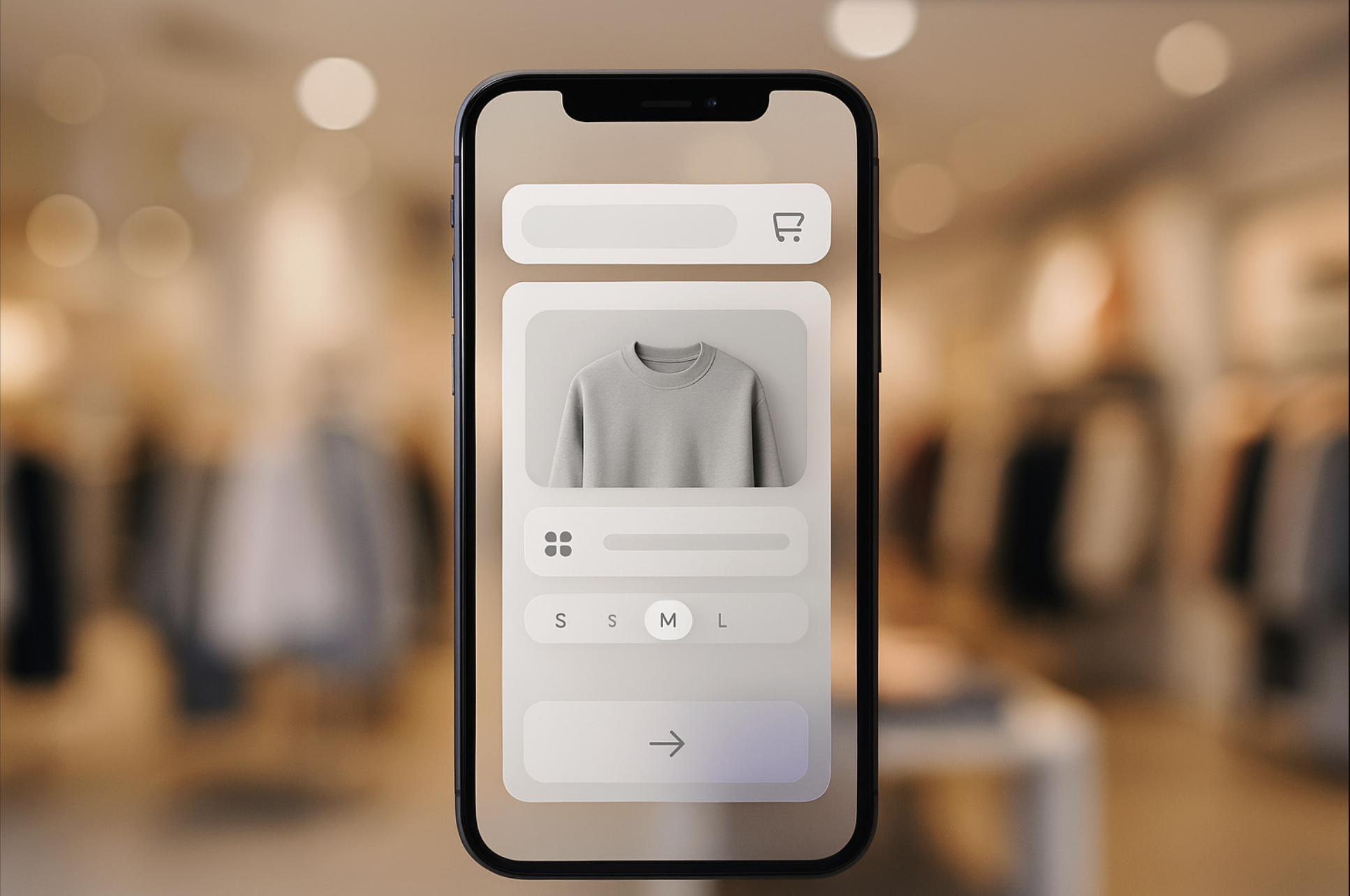



.jpg)
